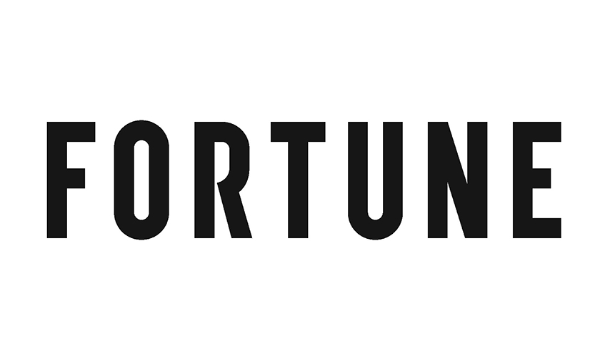
Across the world people have been shocked by social media footage of heavily armed law enforcement officers arresting peacefully protesting students and professors at university campuses around the United States. The so-called “land of the free and home of the brave” looks neither free nor brave – except for the brave protesters who continue to stand up to state and university repression.
Although government repression of student protests is not unique to either the US or this particular period, the current orgy of state repression is very much an illustration of the current crisis of liberal democracy as it is squeezed by both illiberalism and neoliberalism.
But let’s take a step back. Ever since the Hamas attack on Israel on 7 October, many university campuses have been on edge. As Israel’s retaliation in Gaza reached what the United Nations has called genocidal levels, student protests started to appear at some university campuses. Although there were troubling incidents of antisemitism – and Islamophobia – the protests, overall, are neither antisemitic nor violent. This notwithstanding, the far right has jumped on them to intensify its attack on universities.
The far right has portrayed universities as “hotbeds of terrorist sympathizers” and “wokeness” that threaten core “American values” like freedom of speech. In far-right propaganda, universities are the dystopian future of the whole country, where women, non-whites and LGBTQ+ people oppress “real Americans”, ie white, Christian conservatives. And their propaganda has paid off. When Donald Trump launched his campaign, the public image of universities in the US was already not in great shape.
In 2015, a modest majority of 57% of Americans had “a great deal” or “quite a lot” of confidence in higher education. Since then, it has plummeted to just 36% in 2023. Although the biggest drop was among Republicans (-37%), confidence also decreased among independents (-16%) and Democrats (-9%). This is not that surprising, given how far-right talking points are feverishly amplified by “liberal” media like the Atlantic and the New York Times.
Ironically, the mismatch between perception and reality couldn’t be greater. Academia has always been a thoroughly conservative industry and universities have rarely been hotbeds of radicalism, particularly in the global north. But since the rise of the neoliberal university in the 1980s, higher education has become highly commodified and universities have been turned into “edufactories”, run by professional administrators on the basis of market principles.
Although there are fundamental differences in financial and political dependence between perversely rich private universities like Harvard, with an endowment of almost $50bn, and poorer public universities like the many community colleges across the country, the neoliberal logic of contemporary higher education has made university administrators increasingly submissive to assertive private donors and public politicians (who are, predominantly, advocating for rightwing causes).
What sets the current student protests and state repression apart is not just the intensity but the scope. While the rightwing attacks in the past decade have mainly targeted public colleges in Republican-dominated states such as Florida, the past week saw state repression of protesting students at such universities (like the University of Texas at Austin), but also at private universities in Republican-dominated states (like Emory University in Atlanta), and even at private universities in Democratic-governed states (like Columbia University and the University of Southern California).
The starting signal for the current repression was the congressional hearing on antisemitism last December, in which Republican politicians grilled three flustered presidents of Ivy League universities on the allegedly antisemitic protests at their campuses. Afterwards, far-right activists intensified their accusations of antisemitism and plagiarism and with success: two of the three university presidents that testified – Claudine Gay of Harvard and Liz Magill of the University of Pennsylvania – resigned nearly a month after the hearing.
Encouraged by this success, another congressional hearing was organized in April, in which Nemat (Minouche) Shafik, president of Columbia University, did not even try to defend her faculty and students. In fact, she threw several faculty under the bus. The lead of her antisemitism task force said they believed that student slogans like “from the river to the sea, Palestine will be free” and “long live intifada” were antisemitic. Outraged students responded by intensifying their protests, which again increased rightwing pressure to “act”, to which Shafik quickly responded by inviting the NYPD onto campus.
As so often, state repression of a relatively small and localized protest gave rise to the rise of a much bigger and broader protest movement that spread across the country – from New York to California and from Michigan to Texas. Moreover, given that graduation season is only weeks away, university administrators are going into full panic and repressive mode. The University of Southern California has already canceled its main graduation ceremony, which was supposed to feature a speech by a Muslim valedictorian, out of “security concerns”.
Let there be no doubt that the current attacks on US universities are a major political victory for the far right. Not only do they mobilize and unify the conservative base, they also divide that of the liberal opposition. But there are also major lessons for liberal democrats in the country. First, neoliberal universities are no match for illiberal politics. Second, no university is safe: this is not a private versus public university or red state versus blue state issue. And, third and finally, the current attacks are just a small prelude to what the return of Trump will mean for liberal democracy in general and higher education in particular.
Cas Mudde is the Stanley Wade Shelton UGAF professor of international affairs at the University of Georgia, and author of The Far Right Today







